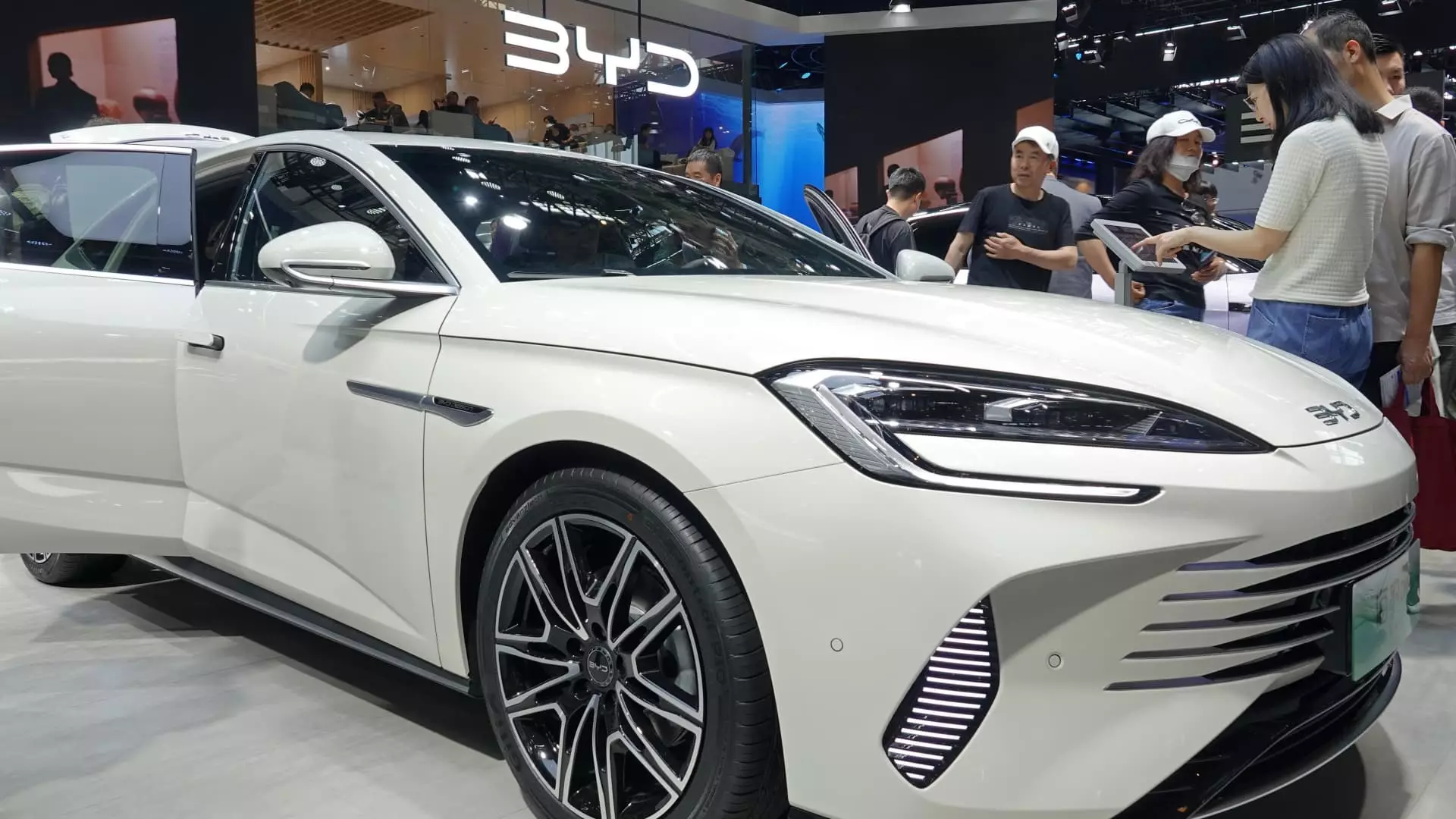In response to the European Union’s announcement of higher tariffs on Chinese electric vehicles (EVs), shares of Chinese EV makers saw a surge in the market. Hong Kong’s Hang Seng index experienced a 1.23% increase, largely driven by gains in EV stocks. Among the top gainers were companies like BYD, Geely, Nio, and Li Auto, with BYD jumping 8% during morning trade. While Geely was up about 4%, Nio and Li Auto saw their shares climb by 1.75% and 2.67% respectively. However, state-backed SAIC was down more than 2%, indicating a mixed reaction in the market.
EU Tariffs and Their Impact on Chinese EV Manufacturers
The EU announced that it would impose extra tariffs on Chinese EV players with a significant presence in Europe. BYD, Geely, and SAIC were among the manufacturers that would be affected by these additional duties. BYD faced additional tariffs of 17.4%, Geely received an extra 20% duty, and SAIC had to pay additional duties of 38.1% – the highest among the three. This is in addition to the standard 10% duty already imposed on imported EVs. The EU probe singled out these manufacturers, while other Chinese EV firms faced different levels of extra tariffs based on their cooperation with the investigation.
The EU justified the imposition of these tariffs by alleging that Chinese EV makers benefited from “unfair subsidization,” which posed a threat of economic injury to the EU’s EV industry. The EU’s move was seen as relatively modest compared to the higher tariffs imposed by the U.S. on Chinese EV imports. Analysts like Vincent Sun from Morningstar suggested that the additional duties were in line with market expectations and reflected the ongoing trade tensions between the EU and China.
The EU’s decision to introduce these provisional duties raised questions about the future of Chinese EV manufacturers in Europe. Joseph Webster, a senior fellow at the Atlantic Council’s Global Energy Center, highlighted the EU’s warning to Chinese state-backed SAIC to establish a production facility within Europe to avoid further tariffs. While SAIC received the highest tariff rate, BYD and Geely were recognized for their existing investments in Europe. BYD’s commitment to building a new EV plant in Hungary and Geely’s ownership of Volvo were cited as examples of their substantial presence in the European market.
The EU’s tariffs on Chinese EV makers have stirred a mix of reactions in the market, with some companies benefiting from the surge in stock prices while others faced a decline. The long-term implications of these tariffs remain uncertain, as Chinese manufacturers weigh their options in response to the EU’s stance on fair trade practices in the EV industry.


Leave a Reply